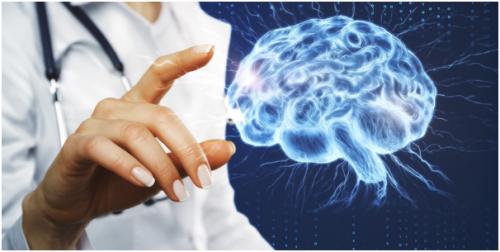Are these terms similar – Neuroscience, Psychology, Neurology, and Psychiatry?

Neuroscience deals with your nerves. Nerves are everywhere in your
body, not just the brain and spinal cord (the central nervous system). Neuroscience
is a multidisciplinary science that is concerned with the study of the
structure and function of the nervous system. It encompasses the evolution,
development, cellular and molecular biology, physiology, anatomy and
pharmacology of the nervous system, as well as computational, behavioural and
cognitive neuroscience. While the majority of neuroscientists does focus on the
brain, there are many who work on, for example, arm or leg prosthetics, or on
the question how precisely the sinus node in your heart works.
Neuroscientific research may
focus on:
·
understanding the human
brain and how it regulates the body and behaviour, including giving rise to
consciousness;
·
finding ways to prevent
or cure neurological and psychiatric disorders.
Neuroscientists use tools such
as:
·
antibodies and gene
probes to identify proteins responsible for brain function;
·
fluorescent dyes to mark
neurons and synapses with specific characteristics;
·
microelectrode arrays to
study the activity of living neurons in real-time;
·
behavioural methods to
study the processes underlying behaviour in humans and in animals;
·
computational models of
neurons and their connections in the brain.
Psychology is first and foremost a quantitative research field. The
study of the soul (psyche means soul; logy means study) which focuses on
understanding the human mind. It encompasses the biological influences, social
pressures, and environmental factors that affect how people think, act and
feel. Psychology is both an applied and academic field that benefits both
individuals and society as a whole. Clinical psychologists deal with patients
with mood, anxiety, and habit disorders, monitoring treatment success and
diagnosing them. The people in this field carry out research on people with
behavioural disorders, depression, and addiction. The professionals also give
counselling to the affected people. Psychology is the study of mind and behaviour.
A large part of psychology is devoted to the diagnosis and treatment of mental
health issues, but that's just the tip of the iceberg when it comes to the
impact of psychology.
The Goals of Psychology
The four main goals of
psychology are to describe, explain, predict and change the behaviour and mental
processes of others
·
To Describe: Describing a behaviour or cognition
is the first goal of psychology. This can enable researchers to develop general
laws of human behaviour.
·
To Explain: Once researchers have described
general laws behaviour, the next step is to explain how or why this trend
occurs. Psychologists will propose theories which can explain behaviour.
·
To Predict: Psychology aims to be able to
predict future behaviour from the findings of empirical research. If a
prediction is not confirmed, then the explanation it is based on might need to
be revised.
·
To Change: Once psychology has described,
explained and made predictions about behaviour, changing or controlling a
behaviour can be attempted.
Neurology is the branch of medicine concerned with the study and
treatment of disorders of the nervous system. The nervous system is a complex,
sophisticated system that regulates and coordinates body activities, explains Dr P N Renjen – best neurologist for stroke treatment in Delhi NCR. Neurology is not limited to the brain but it covers from
central and peripheral neuropathies over pain management, traumatic brain
injuries, neurovirology (viruses that affect nerves). It has two major
divisions:
·
Central nervous system:
the brain and spinal cord
·
Peripheral nervous
system: all other neural elements, such as eyes, ears, skin, and other "sensory receptors"
Psychiatry broadly deals with pathological expressions of self. It's a specialised professional course done by the
physicians who treat the people diagnosed with mental disorders like
schizophrenia, bipolar disorder and other maniac and phobias. People seek
psychiatric help for many reasons. The problems can be sudden, such as a panic
attack, frightening hallucinations, thoughts of suicide, or hearing
"voices." Or they may be more long-term, such as feelings of sadness,
hopelessness, or anxiousness that never seem to lift or problems functioning,
causing everyday life to feel distorted or out of control.
Difference Between a Psychiatrist
and Psychologist
·
A psychiatrist is a
medical doctor (completed medical school and residency) with special training
in psychiatry. A psychiatrist is able to conduct psychotherapy and prescribe
medications and other medical treatments.
·
A psychologist usually
has an advanced degree, most commonly in clinical psychology, and often has
extensive training in research or clinical practice. Psychologists treat mental
disorders with psychotherapy and some specialize in psychological testing and
evaluation.
Conclusion: Neurologists are the medical
branch of neurosciences, while psychiatrists are the medical side of
psychology. Today these things blend into each other, with prescribing
psychologists and a stronger focus on psychotherapy in psychiatry, but they’re
still different enough to warrant exploring what one really wants to do.
Post Your Ad Here
Comments